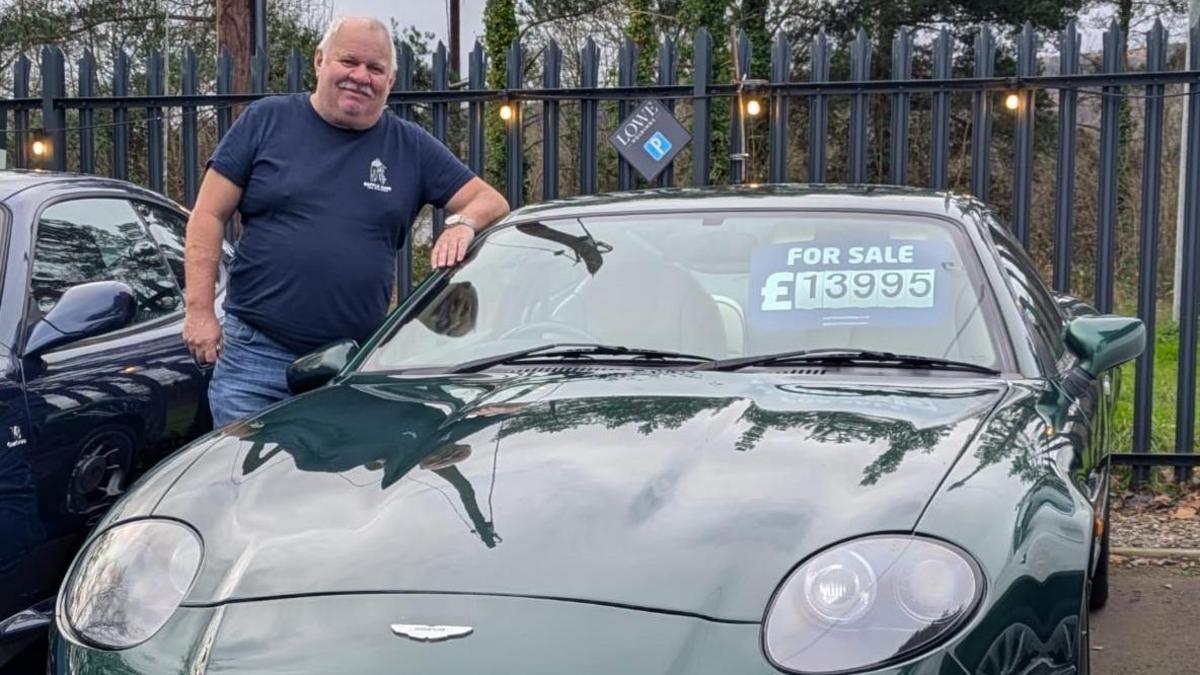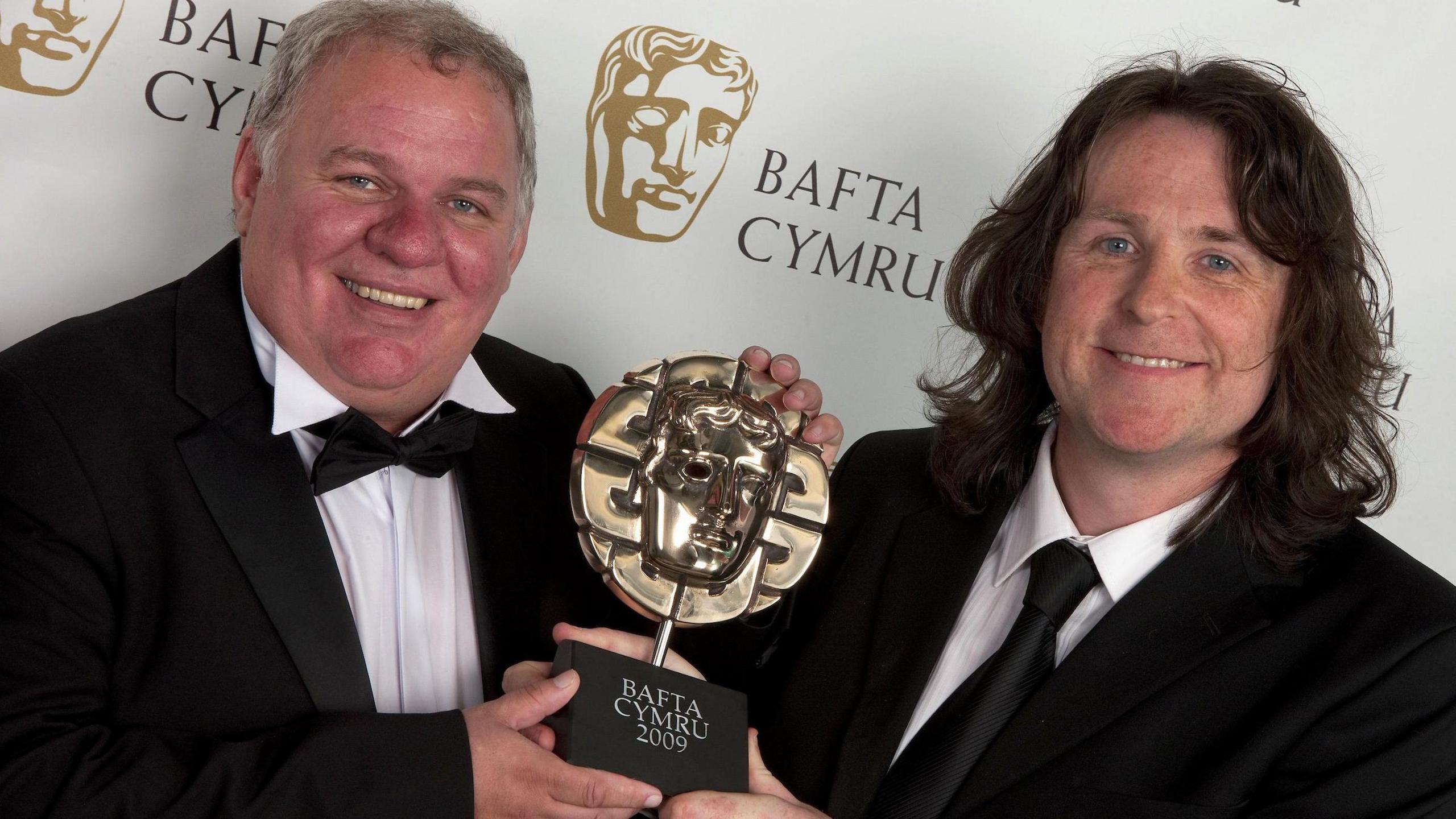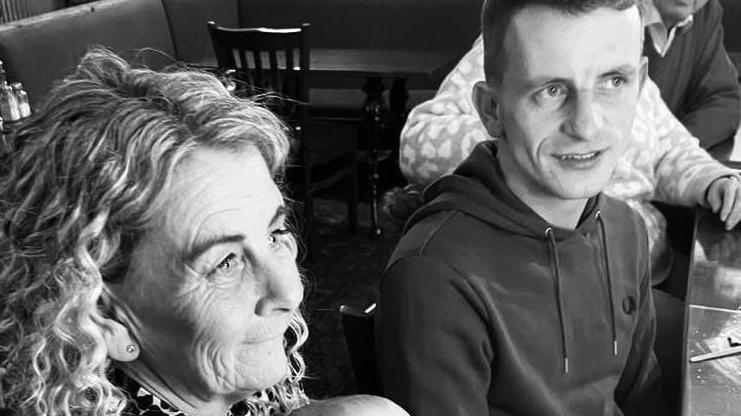'I know 34 people who have taken their own lives'

Andrew Jenkins says its a "wrench" to sell his Aston Martin, but the funds are crucial to fund his film about the effect of suicide
- Published
A decade ago, Andrew Jenkins wrote a list of 19 names - friends, family, colleagues, and acquaintances.
Every single one of them had taken their own lives.
Suicide is the single biggest killer of men under 50, external in the UK and, 10 years on, Mr Jenkins' list of names is now even longer - 34 people in total.
But he is determined to do something about it, and is selling his beloved Aston Martin as part of a drive to fund a feature film, highlighting the issue.
Dad's deep regret over daughter's suicide
- Published10 September 2024
Student's wrong results suicide prompts support call
- Published19 November 2024
"I've known people who seem to be the life and soul of the party, only to go home that very evening and kill themselves," said Mr Jenkins.
"It just goes to show how huge this is, and we've got to do something about it."
Mr Jenkins and his friend, the filmmaker Peter-Watkins Hughes, got their heads together and decided to make a film about the devastating effect that suicide has on people who are "left behind".

Andrew Jenkins (left) and Peter Watkins-Hughes won a BAFTA Cymru award for the film A Bit Of Tom Jones in 2010
The pair have worked together in the past on numerous films, including the Bafta award-winning A Bit of Tom Jones in 2009 and Cow, a short film about texting and driving which became a global hit.
But Mr Watkins-Hughes said suicide was their most challenging issue yet.
"We were really nervous about people being worried, that people would think we're exploiting it or by making a film, you'd encourage people to do it," he said.
"Suicide is such a complicated and individual story - we could just say, throw our hands up and just say, 'well, you know, there is no single rationale, but we've got to do something about it'.
"We've taken advice from mental health charities on the script and had huge support from bereaved relatives of people who've taken their own lives.
"We want the film to be a catalyst to a conversation and if somebody is prevented from going down that path, then that's what it's all about."

Sue Davies, who provided feedback on the script, and her late son Daniel
The screenplay for their proposed film, Bubbles, tells the stories of people who have experienced the devastation of suicide.
Sue Davies, from Brynmawr, Blaenau Gwent, who lost her son Daniel to suicide in May 2024, contacted Mr Jenkins to lend her support when she heard about his film.
She even read a draft of the script to provide feedback based on her own experiences.
"Every day I wake up thinking about [Daniel], asking 'why?' and 'what if?' because you feel like you've failed them," Ms Davies said.
"I don't live anymore. I'm just surviving. I get up and just wait until it's time to go to bed again.
"If [the film] makes one person think about it - about what pain they will leave for their mum, their dad, their grandparents, their siblings, then it'll be worth it."
Mr Jenkins said he knows the power of having conversations to try to prevent suicide.
"I had a good mate who was so down on his luck he couldn't see a way out of it, but we sat with him for hours and got him though that dark period," he added.
"A year later he'd met the love of his life, he now has a child, and he says to me he can't believe how close he was to losing all that - so there is always hope."
Mr Jenkins has been trying to raise money to get the production of the film off the ground, but with more funding needed, he has decided to sell his beloved Aston Martin to be able to start filming in March.
Heartbreaking messages
Mr Jenkins said the poignancy of the film was brought into sharper focus recently after one of many fundraising events - a music night at a local pub.
"One of the guys that came along - only in his 50s, seemed to have a great time and donated some money," he said.
"I found out that later that night he went home and killed himself.
"I was on a massive guilt trip for a while, questioning if we were doing the right thing, but I've been flooded with supportive messages since."
Mr Watkins-Hughes said despite the film being his most difficult to date, it was one that he felt "has to be made".
"We want to ensure that we do justice to the subject and that there is a positive outcome from this," he said.
"To talk about the issue in a way that maybe means that people would be able to speak about their thoughts when they're in that potential crisis point.
"It's not a panacea, it's not a cure or solution, it's just the start of one of the points in the dialogue so that hopefully society can better engage with people facing that terrible position."
If you have been affected by the issues raised in this article there is help available via the BBC Action Line.